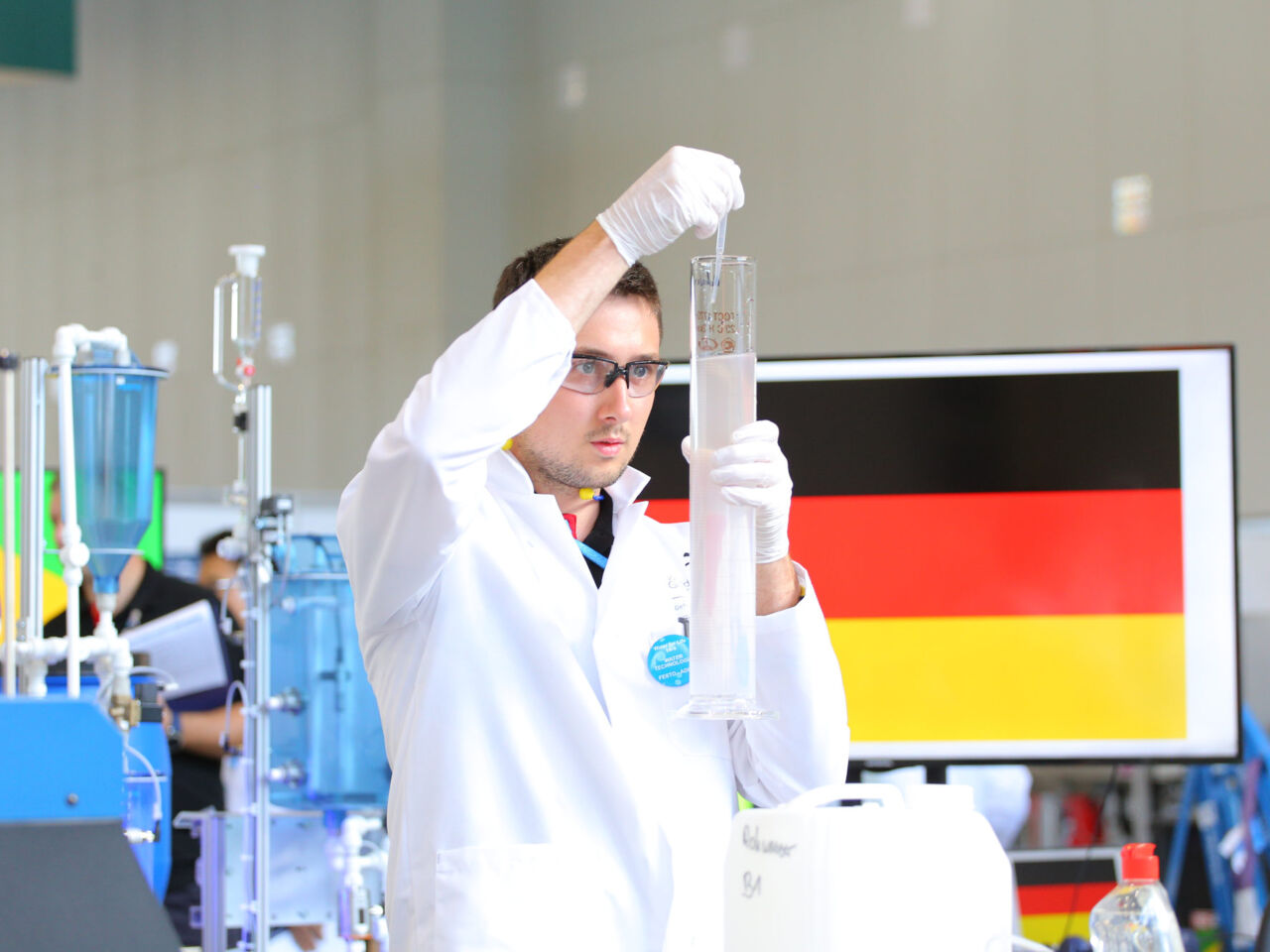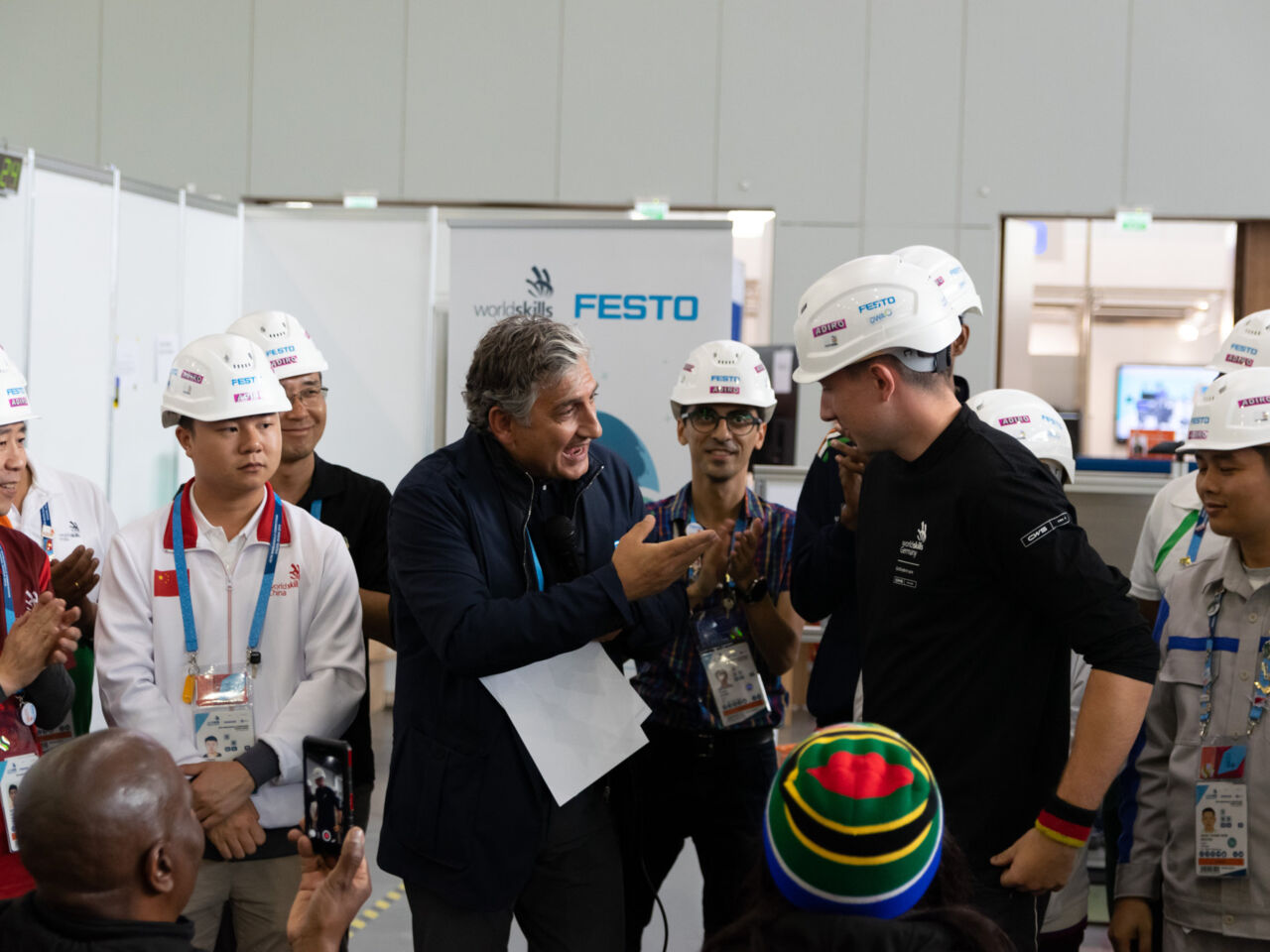27 April 2021
#SkillsSustain: Lukas, Water Technology Champion, Germany
Lukas Kohl competed at WorldSkills Kazan 2019, where he received the Sustainability Award for Water Technology, presented by WorldSkills and Festo.
In my training I was taught a lot about sustainability,” says WorldSkills Champion Lukas Kohl. “At first I thought that only the rich and powerful of this world could do that, but it quickly became clear to me that every individual contributes to the worldwide community of people. “
As the global agenda for sustainable development is set to bring down the proportion of untreated wastewater going into waterways from 80% to 40%, water supply engineering technicians are playing a crucial role to bring progress and implement the latest standards for treatment plants.
“The wastewater runs 24 hours a day, 7 days a week to the plant, where complex processes are used to clean the contaminated water for the environment,” says Lukas Kohl, 24, who works in the control room of the sewage treatment plant of Nuremberg, Germany and is responsible for wastewater treatment and sludge digestion.
Lukas was taught from childhood to care for the environment, which influenced his decision to enter this field.
During his apprenticeship, he was a runner-up at IFAT, a German competition for water technology, and he made to WorldSkills Kazan 2019, where he received the Sustainability Award for Water Technology, presented by WorldSkills and Festo. A recognition that, he says, can be attributed to the importance sustainability was given during his training.
But even as Germany sees a paradigm shift in response to the climate crisis, Lukas says he “would be happy to see more education and transparency on the part of governments.” He believes talented young adults have to be included to get better, faster solutions to global water problems.
“In my opinion, it is particularly important to sensitize young people to the issue of sustainability, but this should not be achieved by empty words, but by pointing out concrete and attainable goals and their solutions,” he says.
For several years, Lukas has been a member of the German Association for Water, Wastewater and Waste (DWA), which offers specialists a platform for dialogue and also reaches out to students.
Related stories
-
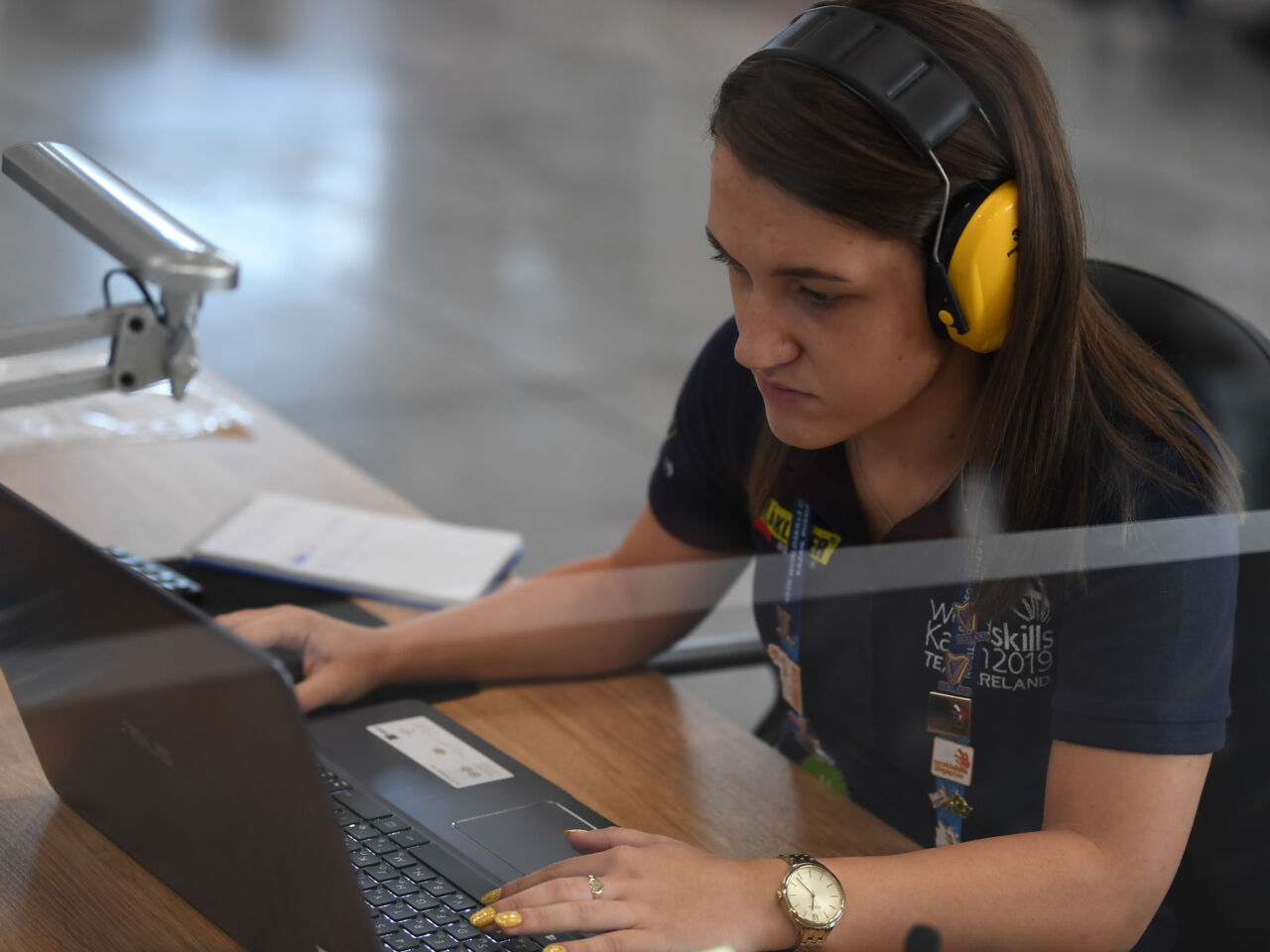
Earth Day 2023: “Every skill, Competitor and Member plays its own part in helping WorldSkills become a more sustainable event”
21 April 2023
-

#SkillsSustain: Upcycling jeans to save the oceans
29 April 2022
-
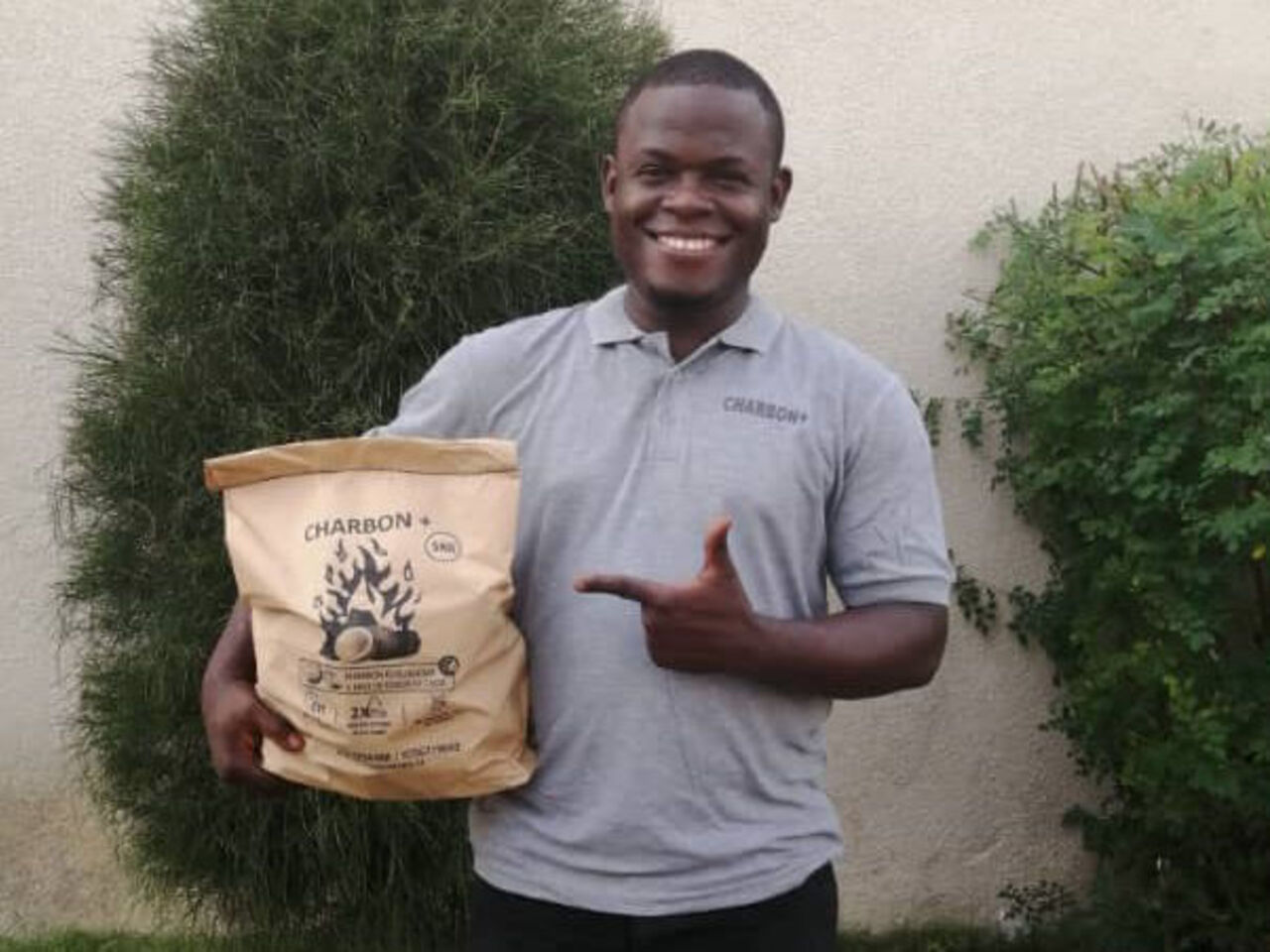
#SkillsSustain: Fighting deforestation one briquette at a time
27 April 2022
-
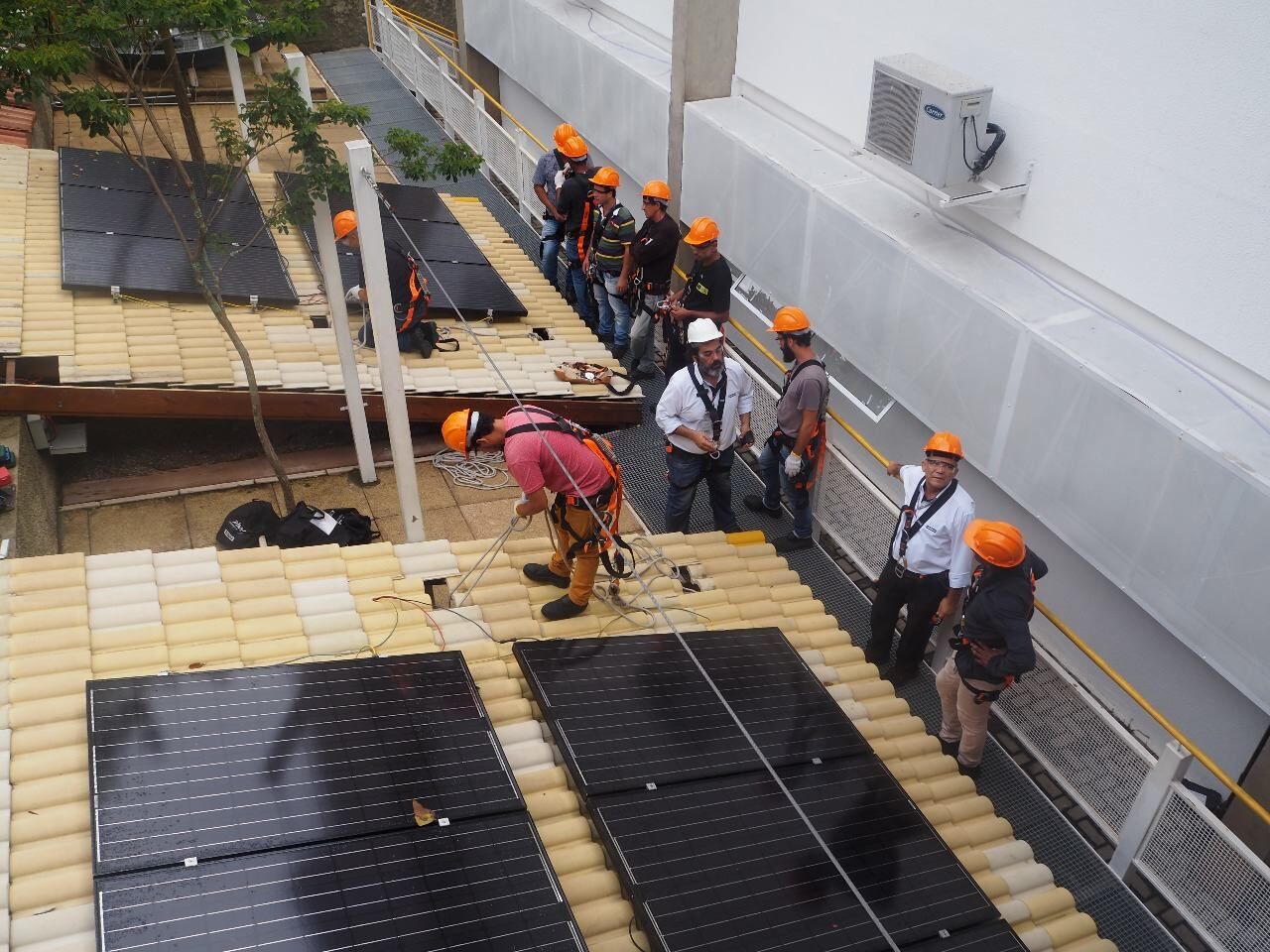
#SkillsSustain: “We must encourage the development of new renewable energy solutions”
22 April 2022
